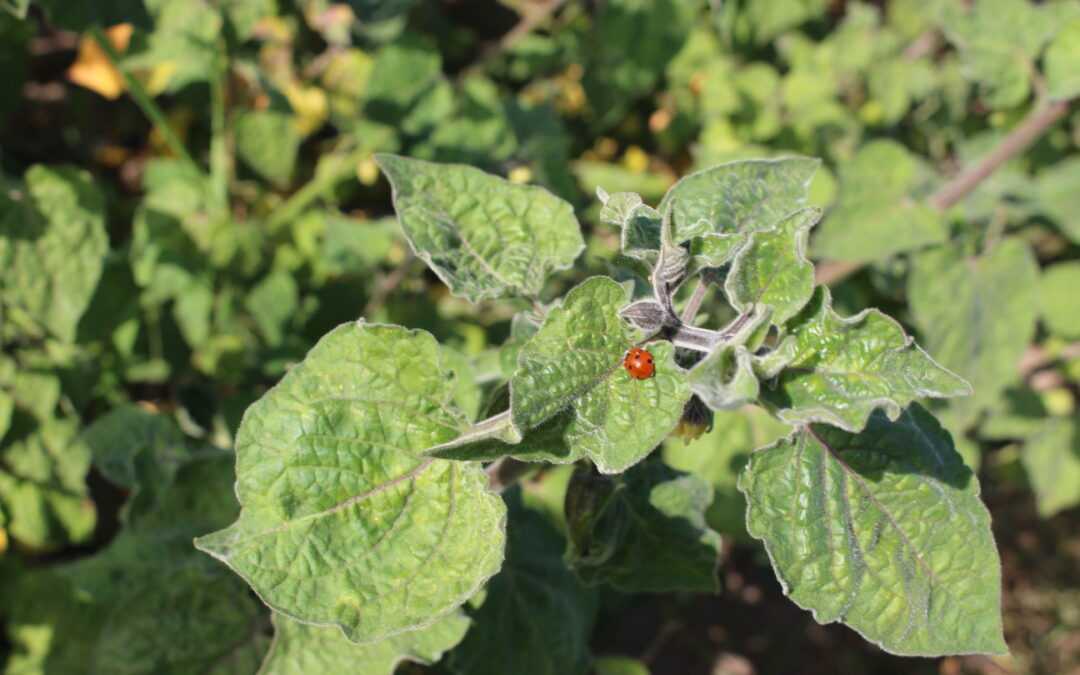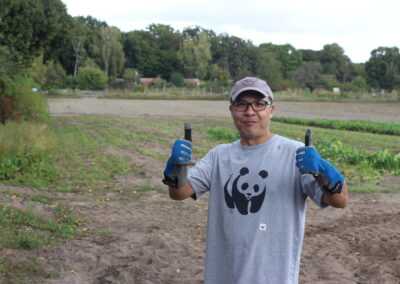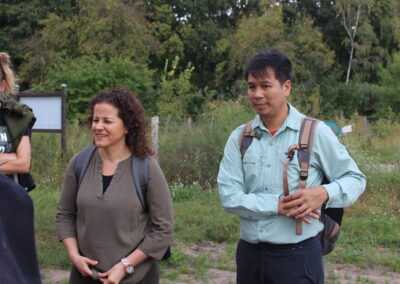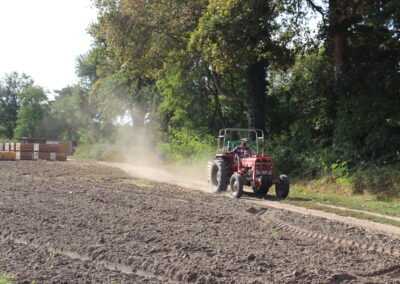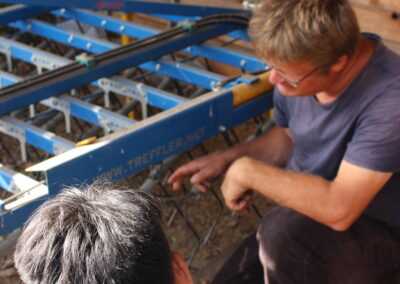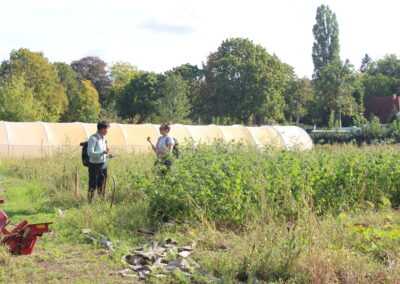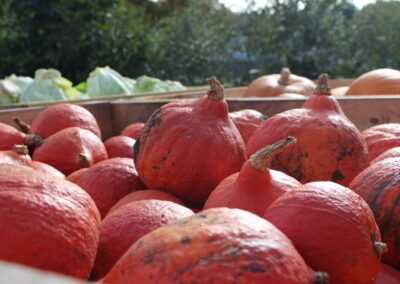Ladybug in the fields of SpeiseGut © WWF-Germany
Together with our Future Food Together colleagues from Thailand, Indonesia, the Philippines, Paraguay and Colombia, we undertook a field visit to a community-supported agriculture initiative, facilitating an exchange of experiences and gaining inspiring insights. Ply Pirom, Future Food Together project manager in Thailand, wrote this article, reflecting his impressions from the visit.
SpeiseGut
At the edge of Berlin, amidst the urban sprawl, the sustainable model of community farming SpeiseGut offers a hands-on experience in organic farming. Every Saturday between March and October there are 10-15 people assisting the farmer: The support from the urban citizens is essential for the success of the farming.
Situated in various locations in and around Berlin, it provides an accessible platform for residents to engage in community farming without venturing far from their homes. This model not only provides fresh, locally-sourced produce for the participants but also educates them on the principles and practices of organic farming.
“Gatower Gemüsegarten” is one of the areas where the Community Supported Agriculture (CSA) SpeiseGut cultivates the produce, where urbanites, farmers, and nature converge to create a sustainable food production system, fostering a community that is deeply rooted in sustainable farming practices.
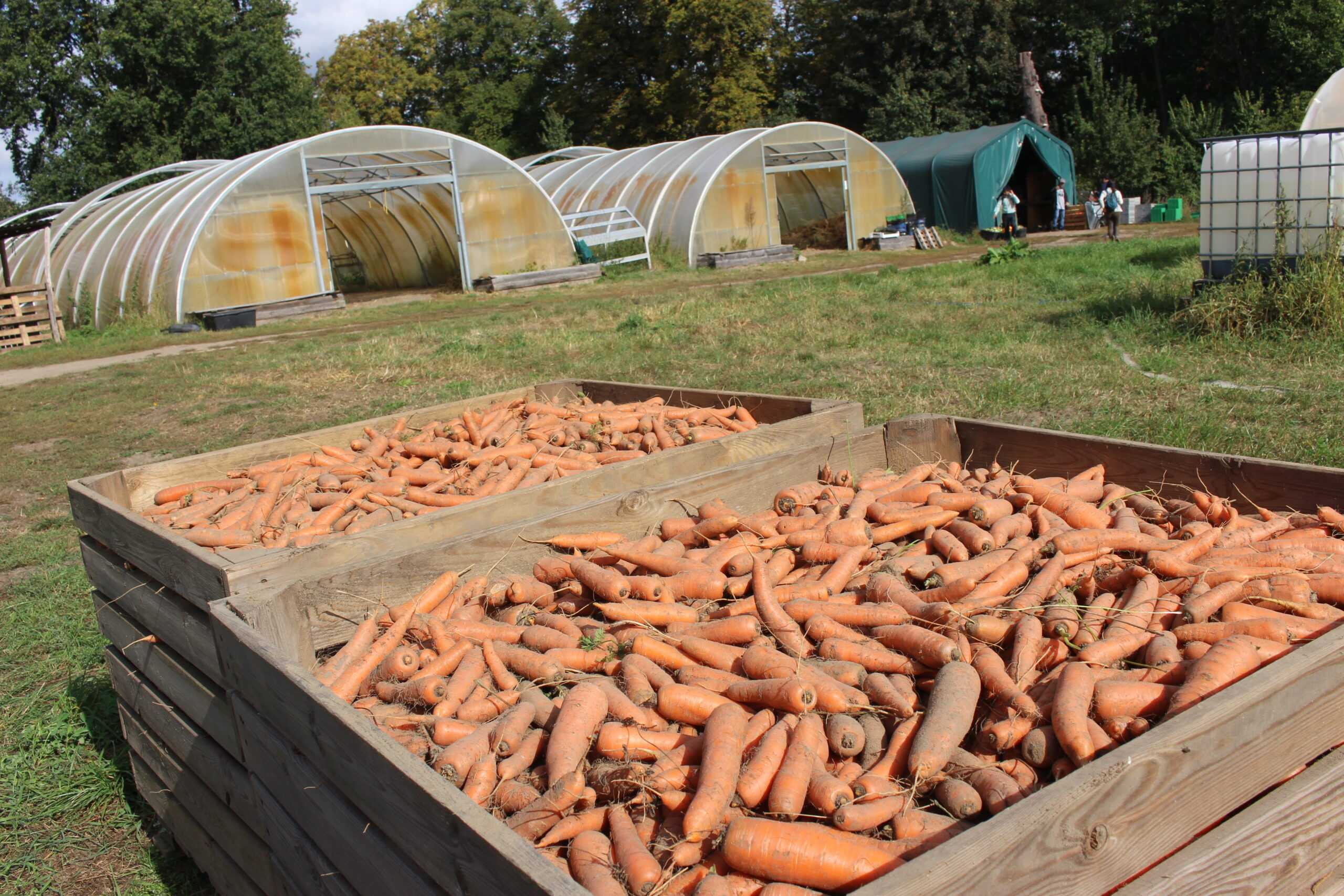
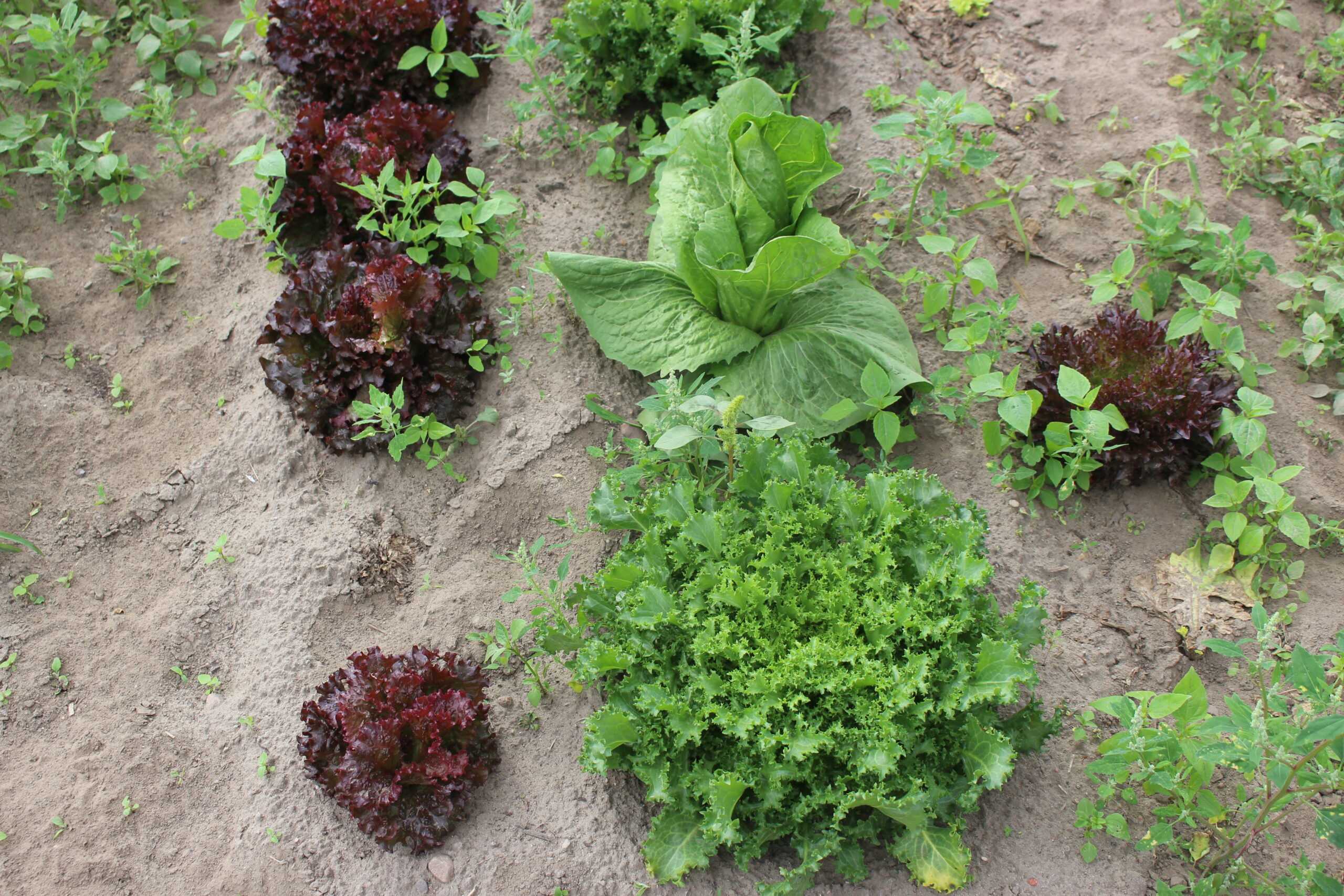
Carrots and fresh salad: Produce in early autumn © WWF-Germany
A Model of Shared Risks and Rewards
SpeiseGut operates on a CSA model where urban customers pay an annual fee, ranging from 60-120 EUR per month, and in return, receive weekly deliveries of organic produce between spring and autumn, and biweekly during the winter months January and February. This model transcends mere transactional interactions, establishing a system of shared risks and rewards. This model ensures consistent market and financial support for farmers, enabling them to continue their sustainable practices.
Consumers, while enjoying fresh produce, also share agricultural risks, thereby developing a profound understanding and appreciation of the challenges faced by farmers.
Transparent Communication and Community Participation
SpeiseGut maintains transparent communication with its members through newsletters, keeping them informed about the farm’s situation and progress. This practice not only keeps the community engaged but also fosters a sense of belonging and participation among the members.
Participating in community farming fundamentally alters one’s perspective on food consumption and sustainability by providing a firsthand experience of the farming process. It demystifies the journey from seed to plate, highlighting the labor, challenges, and expertise required to cultivate crops. This direct involvement fosters a deeper appreciation for the produce, likely influencing more mindful consumption and waste reduction. Moreover, understanding the impact of sustainable practices on the environment and crop yield may propel participants towards advocating for and adopting more sustainable lifestyles.
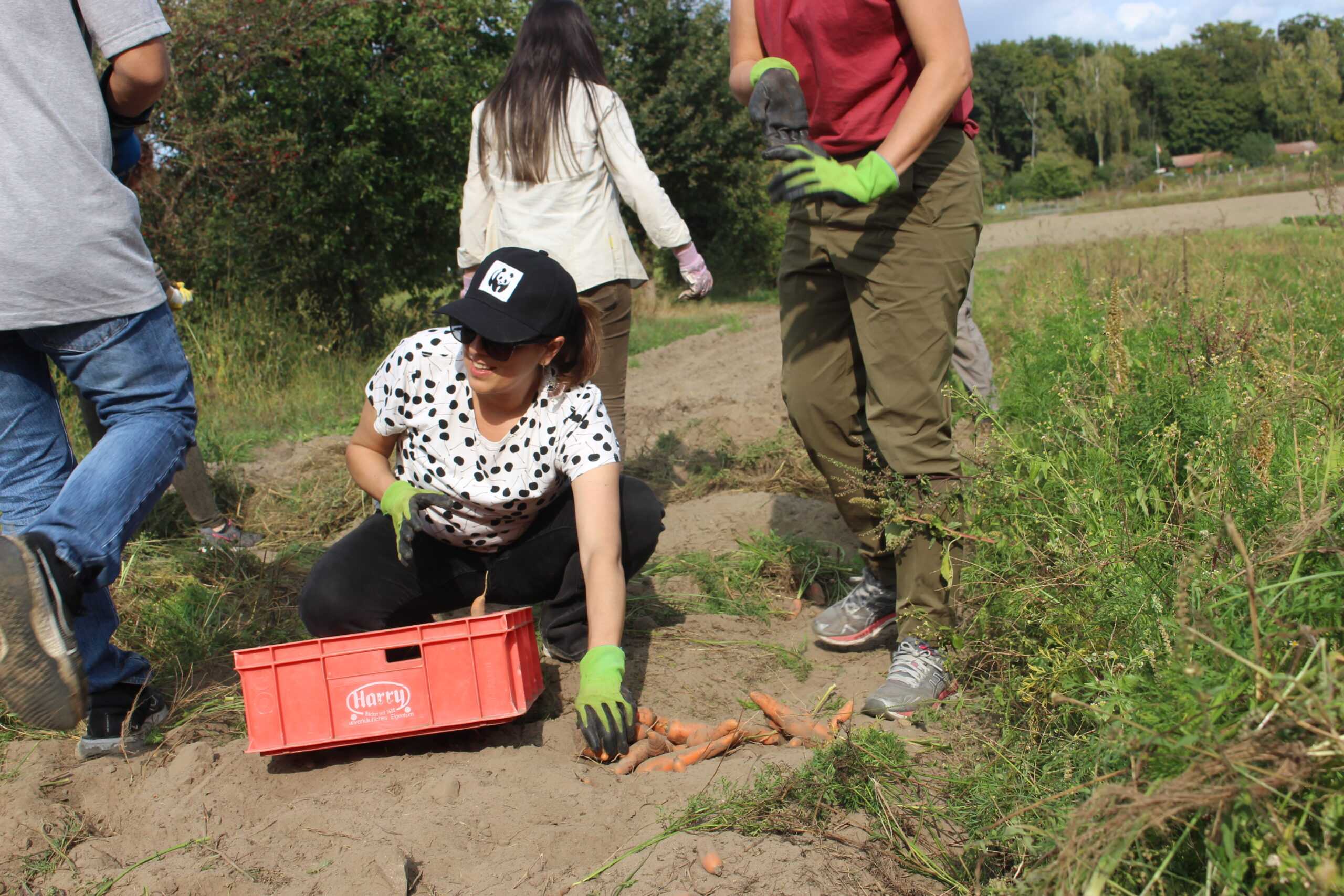
Our team joining the carrot harvest during the field trip © WWF-Germany
Promoting Sustainable Farming
SpeiseGut not only promotes sustainable farming but also fortifies community building among urban dwellers. It provides a common ground where individuals, bound by a shared interest in organic farming and sustainability, can connect, share experiences, and learn from each other such as by haring recipes: how to cook delicious food from seasonal vegetables and learn about the variety of recipes available to prepare e.g., cabbage in a delicious way. The communal aspect of sharing both the joys and challenges of farming, celebrating harvests, tips foster a sense of belonging and collective responsibility among the participants.
The farm is committed to organic and sustainable methods, utilizing innovative pest management techniques, such as using seed oils and planting herbs that act as bio-pesticides. Additionally, netting is used as a physical barrier to protect some of the crops without resorting to chemical interventions. The land has been used for agricultural practices over the last decades. Before the CSA started, the area was used by a conventional horticulture business. SpeiseGut utilizes cow and horse manure, not just as a fertilizer, but as a means to create beneficial soil structure. Basic fertilization with potassium and lime also plays a crucial role in maintaining the fertility and health of the soil.
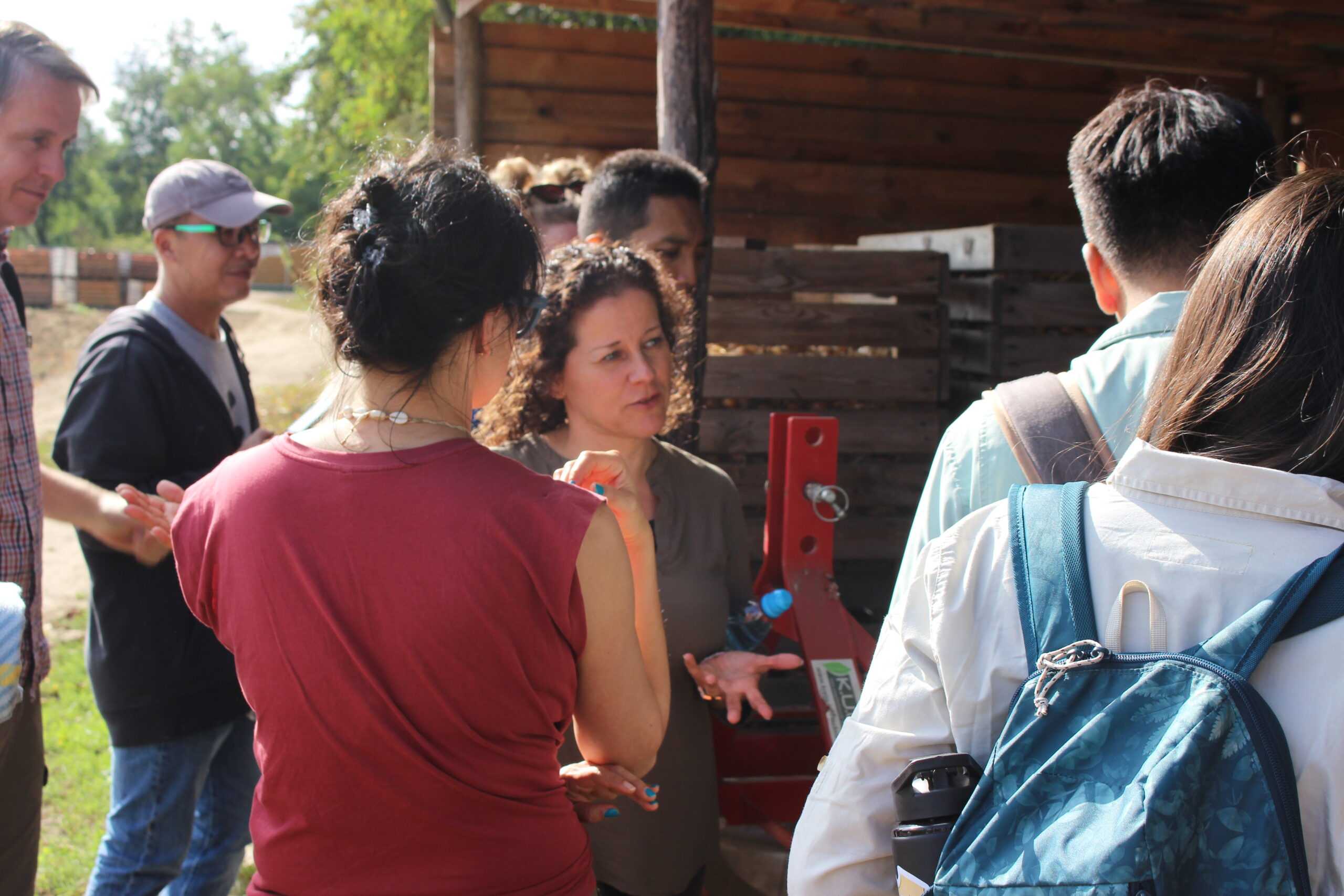
Impressions from our field trip with colleagues from all over the world © WWF-Germany
Direct Marketing and Diversification of Market Risks
Employing a strategy of direct marketing to regional markets, which includes retail outlets and hospitals, SpeiseGut diversifies market risks. This approach not only ensures a stable market for their produce but also allows them to contribute to the local economy and provide fresh, organic produce to a wider community. They also work with children (to educate from the beginning about how food is produced), and have educational programmes on the farm as well (kindergardens and schools).
Adapting the Model Globally
The model of SpeiseGut can be adapted or expanded to other urban settings globally by:
- Identifying Suitable Locations: Seek urban spaces, such as vacant lots or community parks, that can be converted into farming plots.
- Community Involvement: Engage local communities to understand their interest and involve them in the planning and execution phases.
- Collaboration: Partner with local authorities, NGOs, and businesses for support in terms of resources, expertise, and funding.
- Education: Implement workshops and training sessions on sustainable farming practices to equip participants with the necessary knowledge and skills.
- Technology Integration: Leverage technology for efficient water and resource management, and to create platforms for knowledge sharing among global community farming initiatives.
Community farming stands out as a beacon of sustainability, community participation, and environmental stewardship. It not only provides a source of fresh, organic produce but also serves as a platform for education, community building, and promoting sustainable living among urban dwellers. As our cities continue to grow, models like this sow the seeds for a future where consumers and farmers can coexist in a mutually beneficial ecosystem, fostering a global movement towards sustainability and mindful consumption.
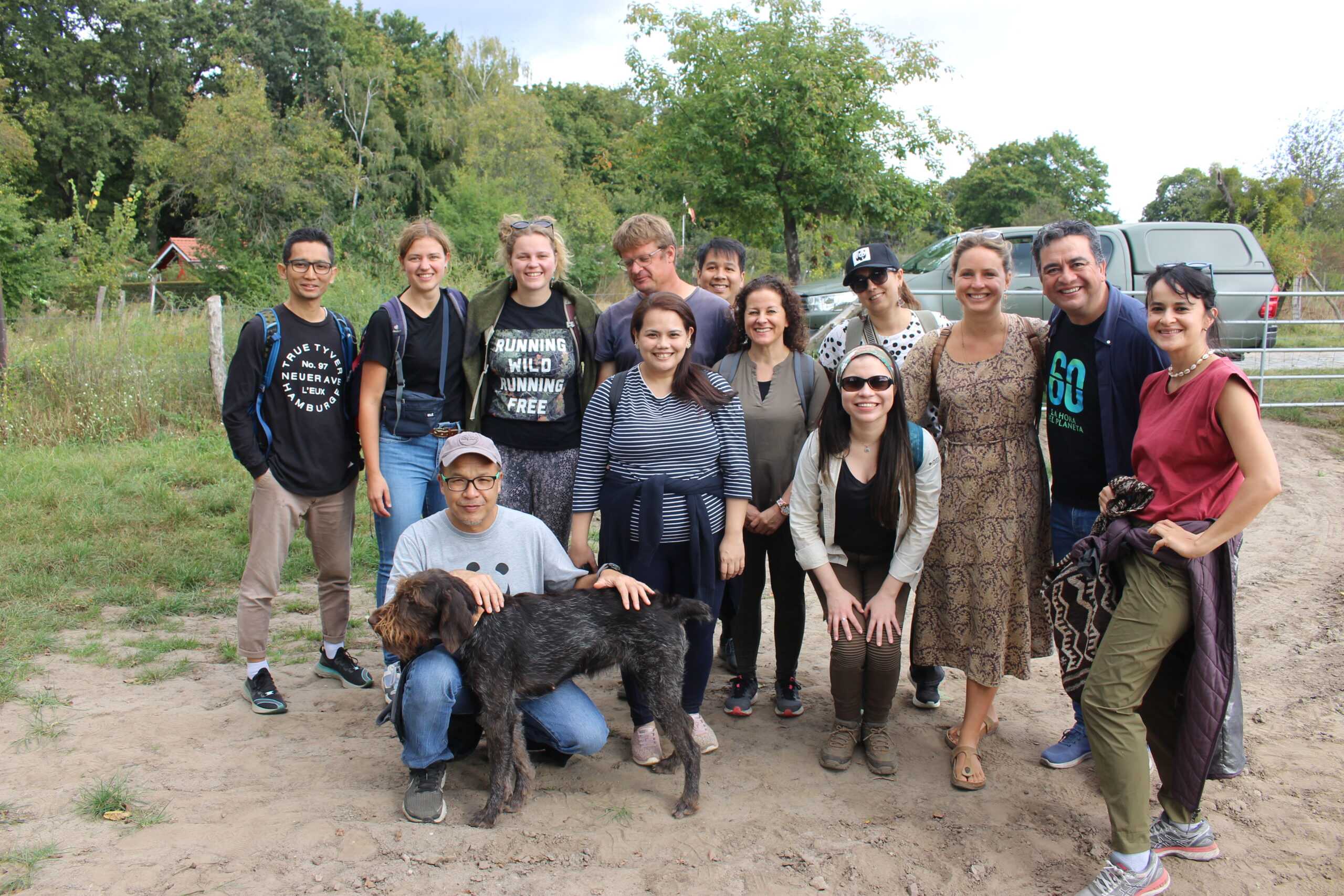
Group photo of our dedicated Future Food Together teams, as well as the head of SpeiseGut (4th from left, back row) © WWF-Germany

